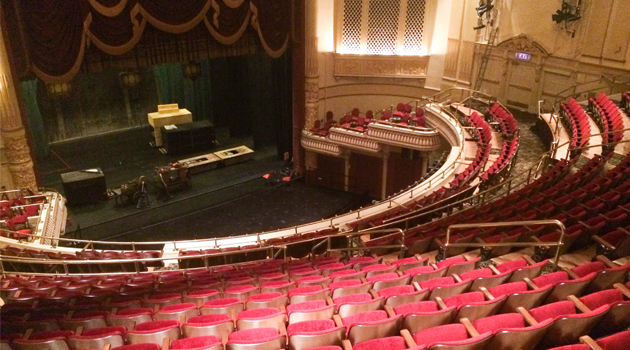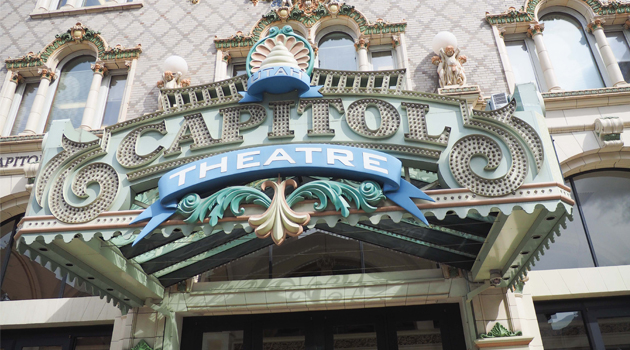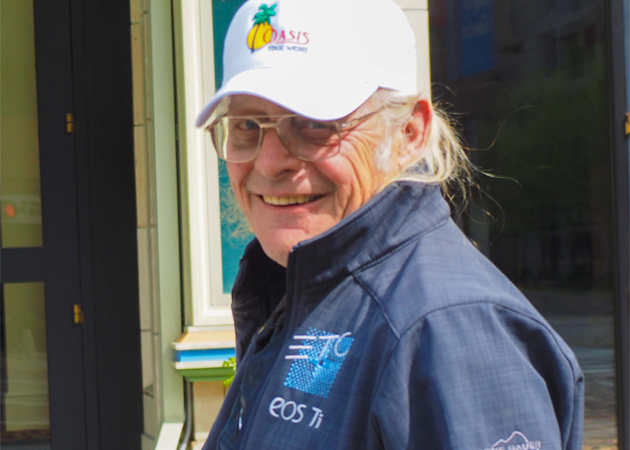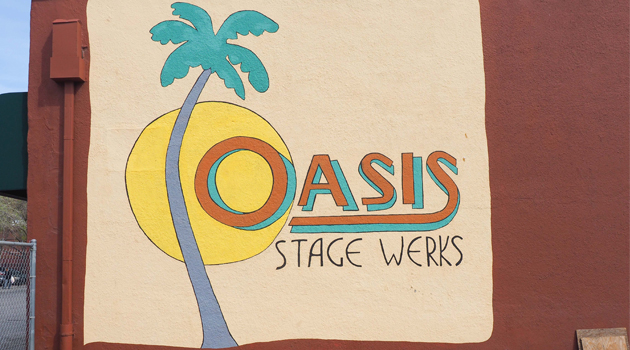A Salt Lake pas de deux
Date Posted: 6/11/2015

Written by Marshall Bissett
A visitor to Salt Lake City could be excused for not thinking of it as the 'Dance Capital of the West.' In a state known more for scenic beauty, political controversy and skiing, the tradition of classical dance runs as deep as the seams of silver and copper that have funded the local arts scene for over a hundred years. Salt Lake is home to Ballet West, one of America's premier ballet companies, which started as the dance department of the University of Utah and later became Utah City Ballet. Modern audiences know it as the subject of the CW reality-TV series
Breaking Pointe
, which followed the complex and rarified lives of dancers.
Ballet West and ETC dealer Oasis Stage Werks have been dance partners for 40 years. Gary "Frog" Justesen is the owner of Oasis and the designer of D'Anser™ portable wooden dance floors used by dance companies worldwide. For a guy who would not look right in tights, Gary has definitely paid his dues in the world of classical ballet.

"We started out building scenery for Ballet West in 1978, just after I came off the road with Barry Manilow," recalls Justesen. "I still tour with New York City Ballet as I have for the past 40 years." Never losing sight of its roots in dance, Oasis Stage Werks is now one of the largest rental companies west of the Rockies. With a long history of repeat customers, Justesen observes: "I can never retire." Oasis was an early adopter of Stageline mobile stages and still operates metalwork and case-building shops, along with a full-service drapery department.
Justesen could also serve as an ETC historian. "Long before ETC acquired LMI and went into the dimmer business, I was using the Concept 250 and Idea consoles, and later the Response line. I was one of only five people at the very first field-training sessions." After Tim Hansen came on board as sales director, Oasis took off, and today they install at least five high school systems a year and a number of
Prodigy®
rigging systems in Utah and Wyoming. "Now that we have
Vortek
, the rigging opportunities are really opening up," adds Justesen.
They are justly proud of the work they have done on the new home of Ballet West in the downtown Capitol Theatre building. In a dramatic blending of architectural styles, the majestic Victorian lobby and auditorium are now abutted by four floors of dance studios, offices and a rooftop VIP area that make up the new home of Ballet West. The functional austerity of the dance studios is offset by the rich rococo bas-relief of the building's façade.

In 1991, The Capitol Theatre was one of the first installs to use ETC
Sensor®
dimming. "We put in six 96-way racks and an Obsession II. This year we will be upgrading them to
CEM3
and
Net3
and an
Ion®
2000. This will give them more flexibility and wider bandwidth," explains Justesen. The rig is exclusively ETC
Source Four®
, using all fixture types except the 90 degree. No less impressive, each floor of the Ballet West side has its own dimmer room with emergency panels and battery-powered inverters. The 16 dimmer racks (around 300 channels) are controlled by Unison
Mosaic®
and Net3 with DMX going out to all the rehearsal and communal areas. Unison
Paradigm®
software with a virtual touchscreen runs everything in the building. "Our client loves the Project PC and Conductor Module. They can quickly control any channel and override any of the preprogrammed sequences. It's a very handy tool," says Justesen.
Jeff Williams is the operations manager for the Capitol, the Rose Wagner and the other Salt Lake County fine-arts facilities. He attributes the odd technical glitches in the installation to the renowned ghost in the Capitol Theatre: "Every trade was affected, from the HVAC guys to the plasterers. Equipment would move in the night and processors would blow up for no reason. The Oasis guys handled it well and did a great job." With a resident company of 60 dancers, a further 20 in Ballet West 2, and 250 dance students, the three studios are in constant use. The lighting of each studio has settings appropriate to the varying outside conditions, for power savings, and to support the mood of the choreography.

Justesen is very happy with his county's financial support of the arts: "The ZAP tax [Zoos, Arts and Parks] has provided a shot in the arm to local arts funding. When you pay sales tax in Salt Lake County, a portion (one penny for every $10 spent) provides grants to over 160 arts and cultural organizations." It is tempting to imagine a similar plan for other major cities.
Oasis is in expansive mood. This year they acquired an adjacent plot of land and are dancing ahead with plans to open a new warehouse in the fall.